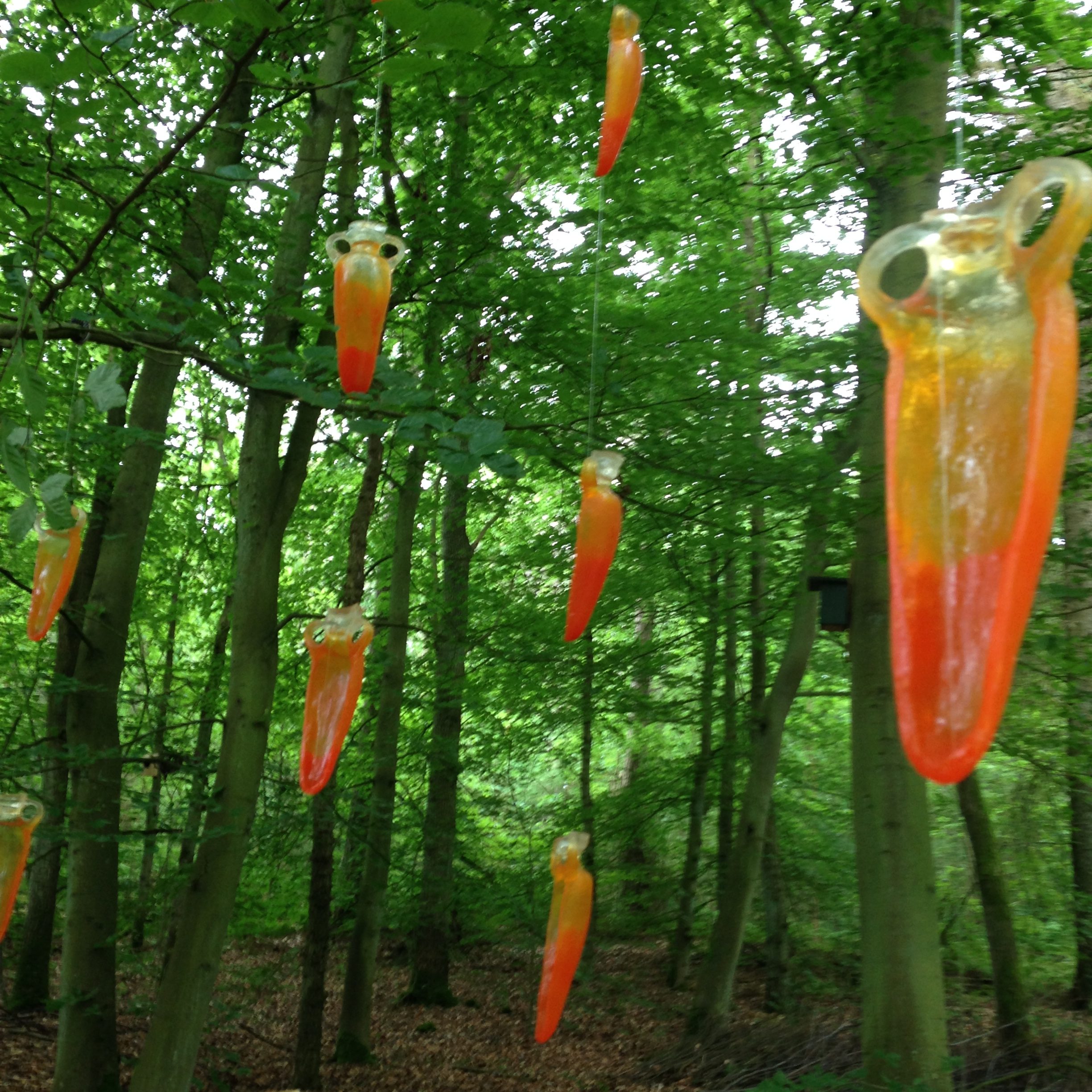A sound and visual installation in the woodlands of NT Fyne Court.
Presented alongside the Arborealists exhibition for Somerset Art Weeks 2022.
Artists Rowena Pearce and Tim Millar
Composer Helen Ottaway
Sound designer Alastair Goolden
Voices Melanie Pappenheim
and Caroline Radcliffe
Violin Anne Wood
Flowing tears quenching the burnt earth as Phaeton’s sisters mourn their brother after his terrible and destructive fall – this is the main inspirational image for Lachrymae (Latin: tears). Phaeton’s sisters are turned to trees and their tears, transformed to amber in the heat of the sun, are carried away by the river to become adornments for Roman brides. Thus something of beauty is created and the sadness transcended. Transformation and the emergence of life from water are common themes in the work of Rowena Pearce and Helen Ottaway. Through this story these themes are drawn together, making tears and laments, blending and merging the visual and aural into a single experience. Lachrymae is an exploration of music and visual art through movement.
“Cortex in verba novissima venit. Inde fluent Lachrymae
(The bark closed over their last words. Then the tears flowed)” [Ovid, Metamorphoses]
“…tree bark, rough and furrowed, crept on upwards over their bodies, throats, faces…….
Through that bark, there oozed lymph like tears……….” [Ted Hughes, Tales from Ovid]


